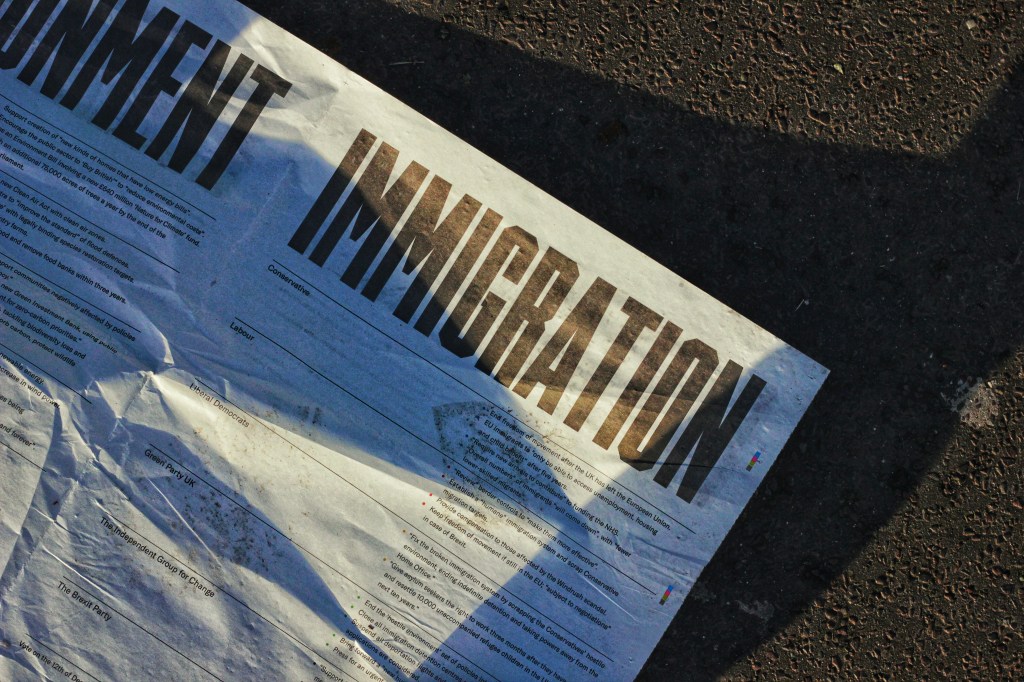Written by Professor Majella Kilkey

Almost four years after departing the European Union (EU) and almost three years since the introduction of a new immigration system, it is clear that “taking back control of our borders” has not resulted in reduced migration to the UK. Net migration in the year ending June 2023 was 672,000; at the time of the 2016 Brexit referendum it was 321,000.
According to the Office for National Statistics, the most recent increase in immigration is the result of more people coming for work, especially in the social care sector. Home Office data show that in the year ending June 2023, 77,662 visas were granted to care workers; this constitutes two-thirds of all the Health and Care worker visas granted in that year, and over one-third of all worker visas granted.
The Skilled Worker – Health and Care visa
Care workers became eligible for the Skilled Worker – Health and Care visa in February 2022. The visa was launched in August 2020 for medical professionals in the NHS and Adult Social Care. Its extension to the roles of Care Assistant, Care Worker, Carer, Home Care Assistant, Home Carer and Support Worker followed a recommendation by the Migration Advisory Committee (MAC) in its 2021 Annual Report. MAC recommended the move, along with the placement of these roles on the Shortage Occupation List (allowing employers to sponsor care workers subject to a minimum annual salary of £20,480), in order to address the social care sector’s recruitment challenges, which had been exacerbated by the cessation of EU Freedom of Movement (FoM).
Rising net migration. The “dependants’ problem”.
It is against that backdrop that in responding to the latest net migration figures with a five-point plan designed to deliver the “biggest ever reduction in net migration”, Home Secretary James Cleverly did not problematise the care worker visa per se, but rather the right contained within it to bring dependants (partners and children under 18). Cleverly stated, “The first point of our five-point plan will be to end the abuse of the health and care visa. We will stop overseas care workers bringing family dependants…”.
Such exclusion of migrant workers’ dependants is not new. Kilkey and Baldassar argue that historically, migrants were constructed as individual units of labour by Global North receiving states, and their family and care needs were accorded little or no recognition. They point to the temporary recruitment schemes for low-skilled labour in parts of Europe and North America in the middle of the twentieth century as archetypal examples of this logic. These so called ‘guest worker schemes’ did not generally allow dependants to accompany migrant workers. The Baltic Cygnet scheme was one of the first post-war labour recruitment schemes in Britain. It targeted refugee women displaced by the war across Latvia, Lithuania and Estonia for domestic work in TB hospitals in Britain; those recruited had to be single and without dependants.
Moving to current times, Kilkey and Baldassar report on a 50-country comparative study of contemporary immigration regimes, which classifies the UK, along with Australia, Canada and New Zealand, as a ‘neoliberal regime’. The authors of the study, Anna Boucher and Justin Gest, assert that “only Kafala and quasi-Kafala regimes more actively select and exclude immigrants in the interest of maximising their economic contribution and minimising the risk of their financial dependence on state resources.” As Kilkey and Baldassar argue, “neo-liberalism further constructs the ‘useful’ economic migrant as an independent and non-relational actor, leading to restrictive rules around accompanying / joining family members.”
A race to the bottom for the rights of migrant social care workers?
Under the UK’s neoliberal approach to migration, “taking back control of our borders” does not necessarily mean less migration. It was Boris Johnson in his 2019 election manifesto, who abandoned the Conservative’s longstanding pledge to reduce net migration to the “tens of thousands”. With the aim to “Get Brexit Done”, Johnson promised “an Australian-style points-based system to control immigration”. What “controlling immigration” under the logic of neoliberalism means is being able to turn on and off the tap according to economic and political imperatives, and being able to control who is allowed to enter and reside and with what rights and entitlements.
Brexiteers were so opposed to EU FoM precisely because it stood apart in not reducing migrants to individual economic units of labour. Albeit subject to limitations and conditions, mobile EU citizens, including those coming to work in social care, were able to be accompanied by their family members (broadly defined), and, once resident in the UK, EU migrants and family members had the right to equal treatment in employment, remuneration and conditions of work, as well as broader social entitlements. As a result, EU FoM offered choices to EU migrants around how their families were formed, reproduced and cared for in the context of their migration projects. While acknowledging that structural factors, including racism and discrimination, could constrain EU migrants’ choices in the UK, research also highlighted the diversity of family practices facilitated by EU FoM relating to family-formation and family-reunification, the care of children and older people and spanning co-territorial and transnational arrangements.
The prohibition on dependants marks a critical turning point for the rights of migrant social care workers in the UK, who are now more likely to be recruited from India, Nigeria and Zimbabwe, than EU countries. It drastically curtails their capacity for social reproduction and family-life, while increasing the capacity of employers to squeeze labour out of them, and allows the UK to “free ride” on the back of poorer countries where migrant care workers’ own care responsibilities will now be relegated to. A key question is what impact the restrictions will have on recruitment to the social care sector. Migrants may simply decide no longer to come.


